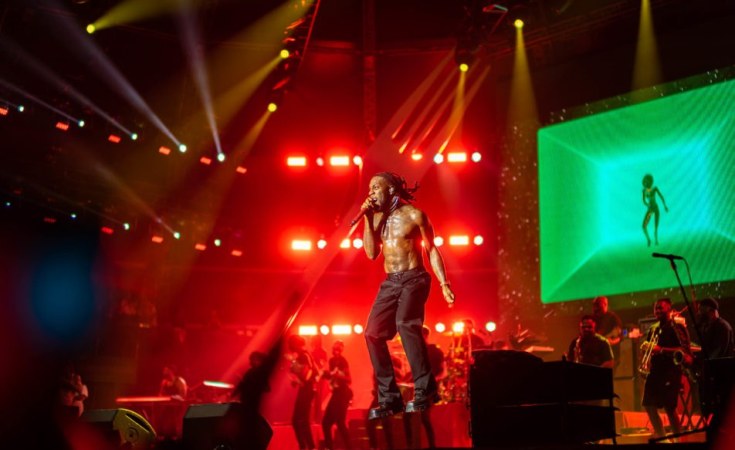Following the Global Citizen Festival held in Ghana recently where The Recording Academy CEO, Harvey Mason Jr announced the possibility of adding an Afrobeats category to the Grammys, the definition of Afrobeats has taken centre-stage.
It is believed that Afrobeats through Western lens is considered music coming out of Africa, but that definition is not accepted by all. Not a few argue that Afrobeats is a derivative of Afrobeat, the unique sound created by the legendary Fela Anikulapo-Kuti, and as such is a sound peculiar to Nigeria.
"Afrobeats is 90 per cent Nigerian and 10 per cent Ghanaian," said the CEO of Inspiro Productions, Ayoola Sadare.
On the seventh episode of Showmax's 'Journey to the Beats', this argument took centre-stage with the older generation dismissing Afrobeats and sticking to Afrobeat. However, the middle and younger generations of music enthusiasts believe Afrobeats is an infusion of African rhythm, language, and culture blended in with influences from the Caribbean, dancehall and other genres of music. It also covers sub-genres such as Afro-pop, Afro-rap, Afro-dance, Afro-piano, and others. They believe Afrobeat refers to the founder of the sound; music and, to some extent, the lifestyle of the genre's founder, Fela Anikulapo-Kuti and his music. Prominent music producer, ID Cabasa has reservations about referring to Afrobeats as a genre that covers every music from Africa.The understanding of what may be classified as Afrobeats requires thorough research by the Grammys if Afrobeats is to be added to the body's long genre list.
"We just had a meeting literally about six to seven days ago, with leaders of the Afrobeats community. We had a listening session where we heard from Afrobeats creators, we talked about the different subgenres, what are the needs, what are the desires, and my goal is to represent all genres of music including Afrobeats at the Grammys," said Mason Jr., during a press conference in Ghana.
The question on many lips is should all music from Africa be boxed into the Afrobeats category if it should be a reality? Should the popular Congolese Rhumba be considered Afrobeats? What about the sounds of Angelique Kidjo?
If Afrobeats should be considered music from West Africa, Nigeria is likely to dominate the list as the provenance of the sound. Given that the Grammys also has a category dedicated to music from other parts of the world, will Africans or Nigerians be eligible for nomination in that category? And will it give rise to a clamour from other popular sounds from Asia such as K-pop?
Showbiz promoter and convener of Industry Nite, Matthew Ohio believes that while it is a good development to have an Afrobeats category in the Grammys, "I don't think it should be called 'Afrobeats' category. It should be an African category because the music coming out of the continent is also diverse.
"However the controversy surrounding Afrobeats," said Sadare, "it is already a force on ground that is spreading well globally. It has now received international acclaim from proponents of the genre like Burna Boy, Wizkid, and even the younger ones like Fireboy DML."
Usually, the Recording Academy receives proposals for new categories from its members. Those proposals are then reviewed by a committee and voted on by the Recording Academy Board of Trustees. This year, the Recording Academy added five categories which included Songwriter of the Year and Best Score Soundtrack for Video Games and other Interactive Media. This will take effect at the 2023 Grammys.
Whether Afrobeats becomes a category or not, the interest to put the genre on the Grammys list is considered a big step that will deepen the conversation in that type of music. However, it will take a while before it becomes a reality.


